
Principles of digital marketing 1-1
Marketing activities have deeply integrated with digital technology and thus digital marketing has become a household name. Then, what is digital marketing? Digital marketing can be defined as using any digital technology to facilitate the marketing process, with the end goal of customer interaction, engagement, and measurement. When we agree that one of the essential nature of digital marketing is direct communication with the audiences, we may trace the origin of digital marketing to direct marketing, such as traditional letters.
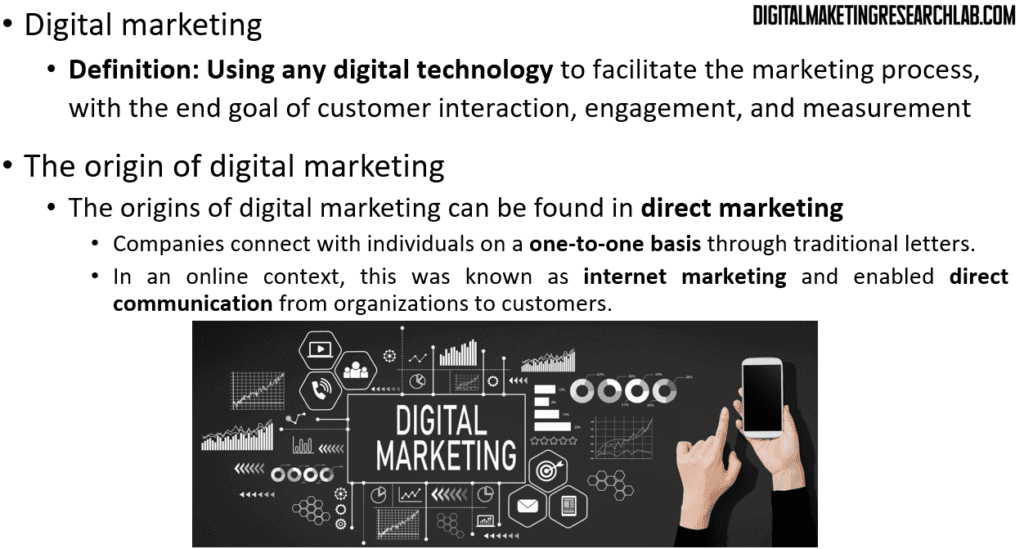
Key concepts
Before we get into the heart of digital marketing, it would be nice to learn some key concepts relevant to digital marketing. First, we need to differentiate inbound marketing, which has a strong fit with digital marketing, from outbound marketing, which is more closely related to traditional marketing.
Outbound marketing is to push out a message to a specified target audience, using visual display banners and video formats multiple times to make sure audiences remember the product.
In contrast, inbound marketing is to pull audiences toward content, brand, or service. (e.g., blogging, social media). One characteristic of these audiences is that they are already interested in already interested in a brand or offerings. Inbound marketing is the most important aspect of digital marketing in that it engages audiences by providing content that can meet their needs.
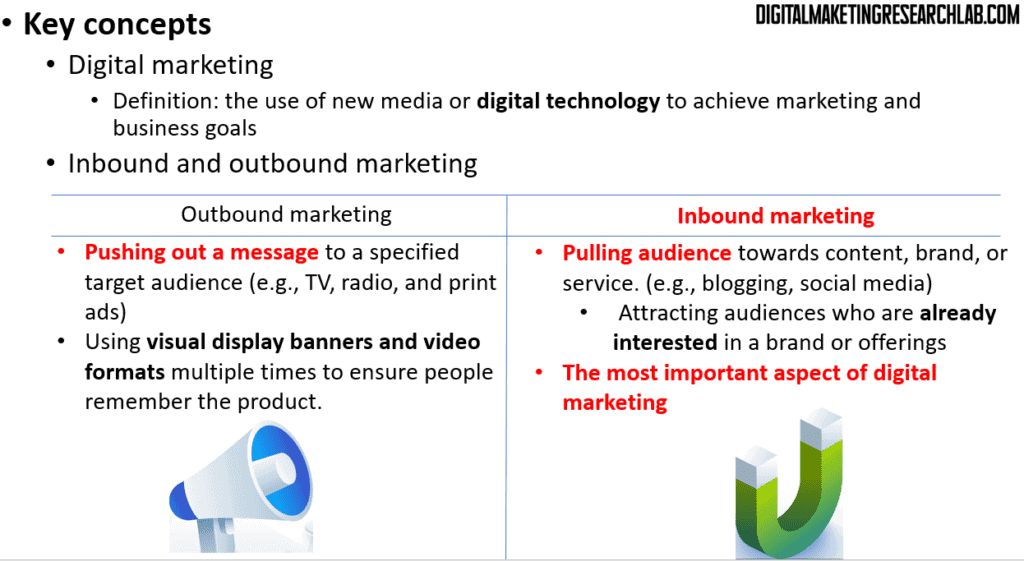
In digital marketing, three major types of media work in tandem: owned media, paid media, and earned media.
Owned media is the media that a brand creates and manages, such as its website or blog. Its benefits include that it cost relatively less, the brand can take full control of the content, and the content has a long life span.
Meanwhile, paid media is any form of media designed to promote a brand or content for a fee, such as ads on TV, radio, or newspaper. It is useful in driving audiences to do purchases or take desired actions, such as sign-up.
Finally, earned media is shares, reviews, mentions, and reposts; anything that allows a brand or product content to appear on others’ media (free publicity). As earned media is driven by audiences’ voluntary behaviors, it has organic nature and high credibility, but, in contrast, it is hard for a brand to control it.
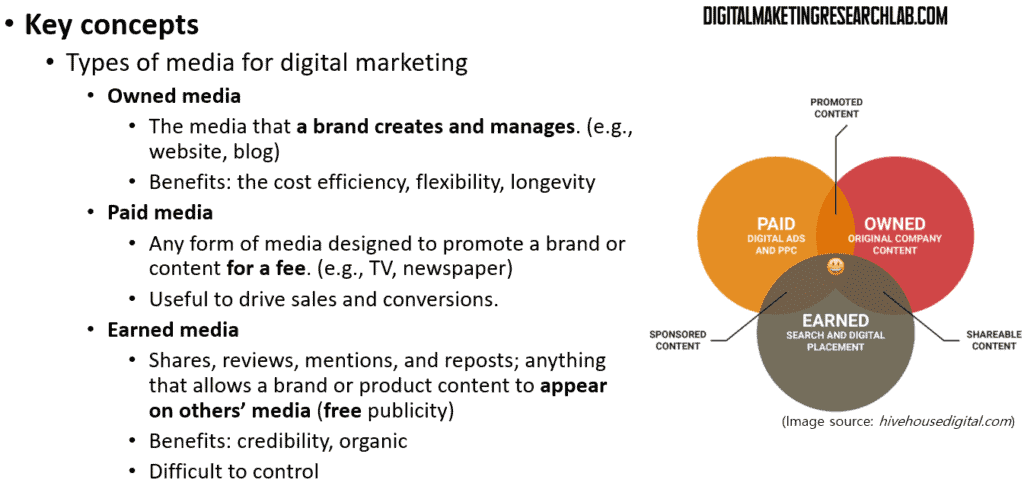
Traditional and digital marketing
Now, it is time to compare traditional marketing and digital marketing. Traditional marketing can be defined as an established or traditional means of mass communication, including direct marketing, outdoor, print, TV, and radio broadcast
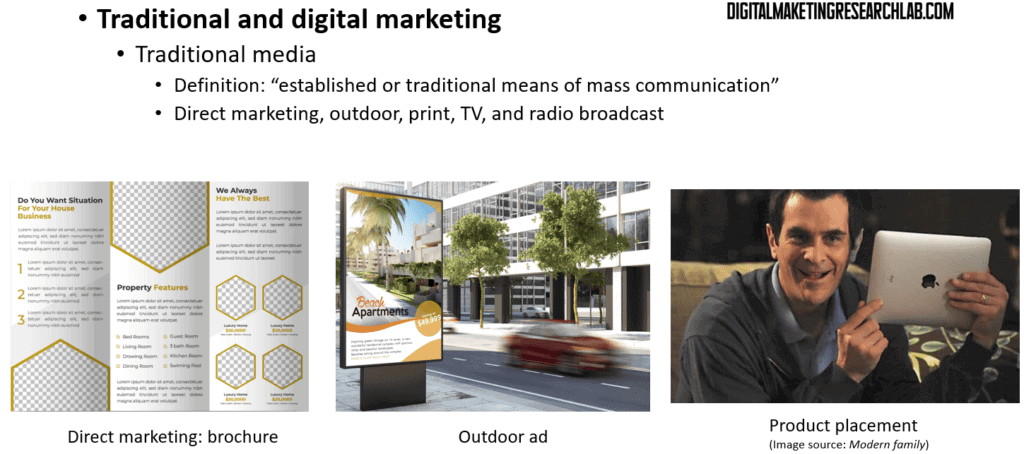
Traditional marketing is more closely related to outbound marketing while digital marketing is closely related to inbound marketing. When it comes to the media type, traditional marketing relies on massive media that can deliver the same content (or single message) for everyone while digital marketing tends to utilize more individual media that can customize content (or multiple versions of the message) for each individual.
For the media format, traditional marketing takes more passive formats where audiences have little means to respond to the message. For example, an audience finds it hard to respond to ad messages on TV. In contrast, digital marketing takes active formats that enable audiences to engage with the content. For example, audiences can engage with content by sharing and commenting on it on social media.
Finally, as for a strategy, traditional marketing adopts an outbound strategy that pushes out a message to as many audiences as possible while digital marketing goes for an inbound strategy where audiences voluntarily search for content, brand, and offers they are already interested in.
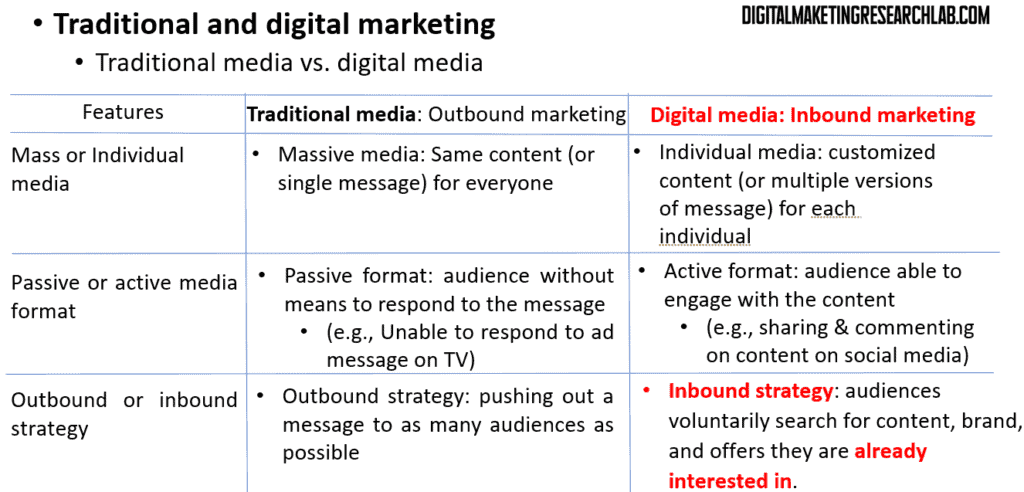
*Reference
Hanlon, A. (2021). Digital marketing: strategic planning & integration. Sage.
Digital Marketing Institute (2021). Introduction to Digital Marketing.